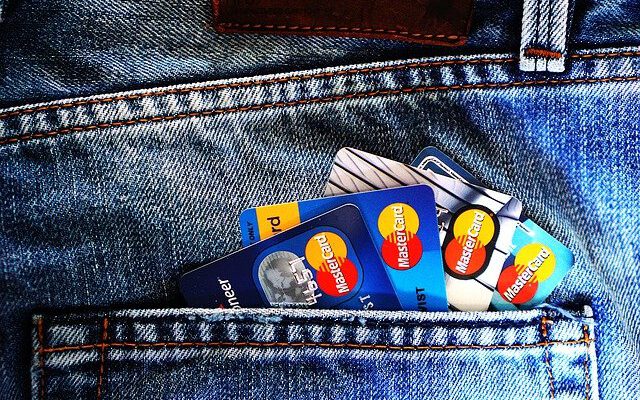The Benefits of Credit Cards for Small Business

Credit Cards : Running a small business is anything but a small responsibility. These business owners often work long hours with few days off and have pressures from every possible angle. In particular, small business finances are enough to make one’s head spin, even at a simple mom-and-pop operation. Anything that helps alleviate financial strain can be a massive advantage, which is where credit cards can come into play.
However, is it really the best move for small businesses to use credit cards, and is there a limit to how much they rely on credit to keep the gears in motion?
We spoke with experienced owners who know the financial realities of running a company themselves, and here’s what they had to say about small business credit card do’s and don’ts.
The Benefits of Credit Cards for Small Business
With so much pressure on small businesses from every angle, credit cards can absolutely be useful for owners in any industry.
The main benefits of a small business credit card is the ability to access higher credit limits rather quickly, and the potential to build strong business credit if handled responsibly.
“Compared to other ways of funding your business, credit cards are lightweight, straightforward, and easy to use,” said Chris Vaughn, CEO of Emjay. “Rather than spending months securing support from VC firms or applying for loans with tons of strings attached, a credit card accelerates the whole process and gives you a lot of leverage to work with. If you’re anticipating a quick turnaround in terms of cash flow, it can definitely be a launchpad for a successful venture.”
In terms of accounting and bookkeeping, business credit cards also simplify things for owners who often find themselves in a whirlwind of convoluted financial information.
“All businesses, no matter how big or small, should use credit cards because this makes it easier to track spending through the online accounts associated with them,” said Schuyler Hoversten, Co-Founder and President of BoxScore. “Furthermore, there are even ways to link credit card spending with accounting platforms such as QuickBooks, and this can be really helpful for whoever is handling the accounting at your business.”
Unlike your run-of-the-mill consumer credit cards, small business credit cards also come with a number of distinct advantages that make them an attractive option for founders and owners in the early stages of growth.
“You can find very attractive offers for business credit cards, including all the classic benefits like cash back, travel rewards, and bonuses for employee expenses with multiple cards tied to one account,” said Matt Woods, Co-Founder and CEO of SOLD.com. “It’s not as common to find business credit with 0% APR offers, but you might encounter some if your credit score is already pristine. Regardless of the card you select, always be timely with your payments and conscious of your credit limits.”
Many cards also offer rewards and perks that are specific to certain industries (restaurants, contractors, etc) further incentivizing owners to sign up and seize the numerous benefits.
“Small businesses should consider using credit cards because they offer the same kinds of rewards as they do for private individuals,” said Nathalie Walton, Co-Founder and CEO of Expectful. “Credit card points and cash back rewards offer a great opportunity to find creative ways to use them to give back to your employees. This is especially true for small businesses that are limited on funds to reward their employees. It can be a win-win situation for small business owners in the long run.”
Potential Downsides of Small Business Credit Cards
Just as every form of business funding has its advantages, owners must consider the flip side of the coin, accounting for the possible traps and pitfalls that come with credit cards of any kind.
“There’s always a risk that comes with taking on debt, even if it’s a small amount with flexible payment structures,” said Judy Nural, President and Founder of MicrodermaMitt. “The business world is extremely unpredictable by nature, and you need to have a bulletproof plan to pay that card off. It can often seem like a good idea in the moment when you’re browsing offers online, but be sure to think deeply about the decision before signing on the dotted line and definitely consult business partners who will be part of your operation.”
Owners should also bear in mind that a personal guarantee is almost always required to obtain a credit card for a small business. If your business doesn’t produce the profits necessary to cover the charges, that financial weight falls on your shoulders and you’ll need to draw from your personal assets.
“Don’t be fooled by shiny new business credit cards and think that they’re somehow in a different category altogether,” said Miles Beckett, CEO and Co-Founder of Flossy. “These cards have your fingerprints all over them and reflect negatively on your personal credit if things don’t go to plan. Using a business credit card is definitely a hedge against risk, but that hedge isn’t as tall or as strong as you think. That’s why they always say to read the fine print when dealing with any kind of card, business or personal.”
Perhaps the most common pitfall of business credit cards is one that also applies to personal cards – overextending yourself by using too many cards at once.
“You still need to be extremely conscientious with how you use your business credit card if you’re the sole proprietor of a company,” said Dr. Jae Pak, Founder of Jae Pak M.D. Medical. “You don’t automatically become an accounting expert by using a business credit card, and many new founders find themselves in the weeds when they add more cards to the mix. It takes a level of vigilance and restraint to track everything simultaneously and know when enough is enough.”
Does Your Small Business Need a Credit Card?
The greatest benefit of being a small business owner is also the biggest source of uncertainty – you’re the boss! Nobody can tell you whether you’re a good candidate for a business credit card, and owners need to reach a conclusion for themselves.
“I think the upsides of a business credit card are numerous, but you shouldn’t rush into an agreement until you’ve explored every single option for business funding,” said Melanie Bedwell, Ecommerce Manager at OLIPOP. “There are traditional loans, and countless new types of loans through fintech lenders and crowdsourcing. Plus, you can apply for grants to get yet another boost.”
With so many funding options on the table, it’s clearly a case of best fit, and not a cookie-cutter situation for small businesses everywhere. Each organization has different priorities, structures, and limitations that can make credit cards a great idea, or something to avoid.
If establishing credit is important to a business, however, getting that credit card is something that owners should eventually consider. It’s just one more advantage to add to the list.
“Small businesses often have challenges in establishing credit,” said Adelle Archer, CEO and Co-Founder of Eterneva. “While there are pros and cons to every method, using credit cards to build credit, protect equity and establish reliable cash flows, is an excellent tool to provide stability and mobility for any start-up or small business. Used wisely, they can factor favorably into the strength of your business and create opportunities for growth.”
Owners should also factor in the tumultuous business landscape post-2020, and expand their idea of what smart financing entails. If a company is to succeed in these times, it takes some out-of-the-box thinking and resourcefulness to get ahead.
“As we emerge from the pandemic, many business owners have found that their customers’ buying habits have changed,” says Brian Pifer, Vice President of Programs and Research at Small Business Majority. “Business owners are figuring out what will work, what doesn’t and how they can meet their capital needs. Credit cards can be helpful tools. Getting paid by vendors can take 30, 60 or 90 days, and credit cards can help fill the gap.”
Tips for Getting and Using Credit Cards for Small Business
For business owners dead-set on getting that credit card, there are a few tips that seasoned entrepreneurs recommend. Many of these recommendations are based on common sense and having a feel for the parameters of the business.
“How much you should have on hand depends on many factors, from your industry to the cycle of your business,” says Gerri Detweiler, Credit Expert and Co-Author of Finance Your Own Business: Get on the Financing Fast Track. “For example, many owners are shocked to learn that just because they have a great product, it doesn’t mean they get paid on time. A robust emergency fund combined with access to capital will help you weather the ups and downs of your business.”
When it comes time to actually apply for cards, business owners should research every offer on the market and narrow down their picks with side-by-side comparisons.
At this point, it’s crucial to keep a practical perspective and avoid offers that seem too good to be true. Most of the time, it’s better to go with the “safe choice” and keep things simple.














